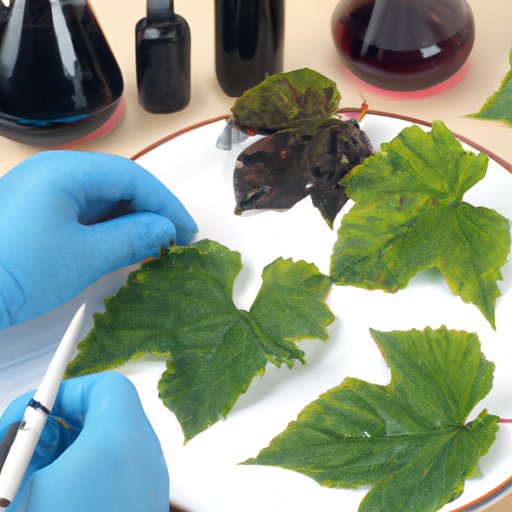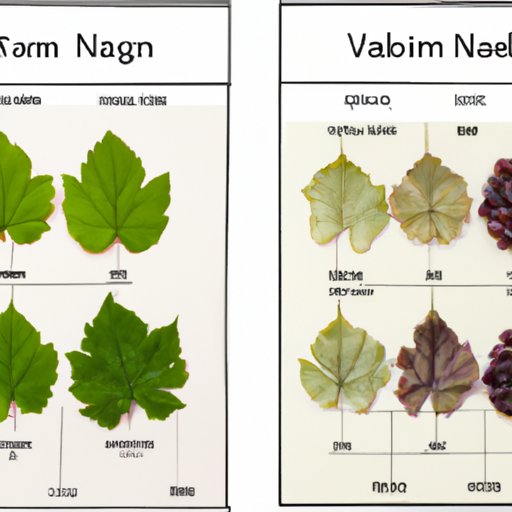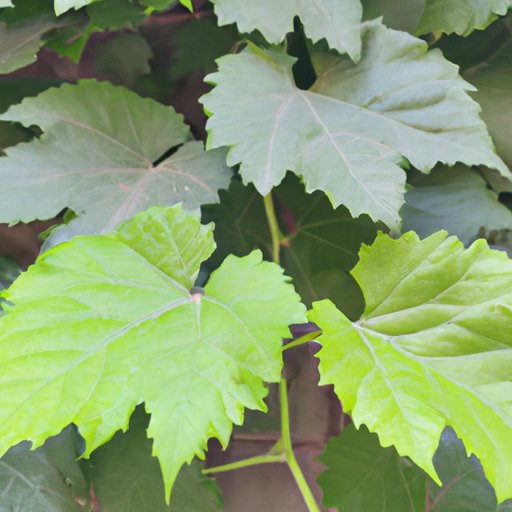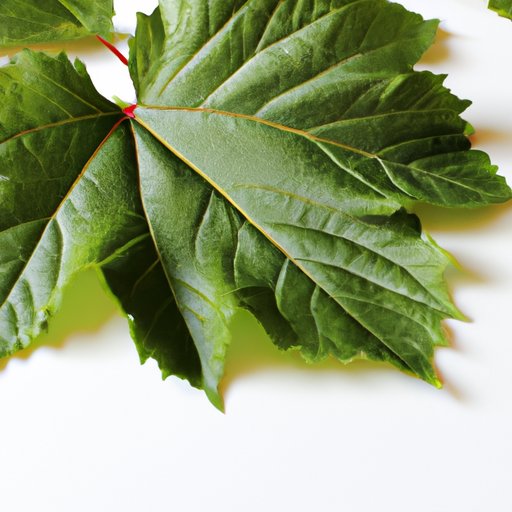Introduction
Grape leaves are edible leaves that come from the grapevine, which is a type of climbing vine that produces grapes. They have been used in traditional medicine for centuries and are now gaining popularity as a nutritious and flavorful addition to many dishes. In this article, we will explore the potential health benefits of eating grape leaves, examine their nutritional content, and compare the nutritional value of fresh and dried grape leaves.
Exploring the Nutritional Content of Grape Leaves
Grape leaves contain a variety of vitamins and minerals, including vitamin A, vitamin C, magnesium, potassium, iron, and calcium. They are also a good source of dietary fiber, which can help keep you feeling full for longer and can aid in digestion. In addition, grape leaves are low in calories, with just 20 calories per 100 grams. They also contain small amounts of protein and carbohydrates.
How Eating Grape Leaves Can Help with Weight Loss
The low-calorie nature of grape leaves makes them an ideal food for those looking to lose weight. Eating grape leaves can help to fill you up without adding too many extra calories to your diet. Additionally, the high fiber content of grape leaves can help to keep you feeling fuller for longer, which may reduce cravings and help you stay on track with your weight loss goals.

Examining the Role of Grape Leaves in Traditional Medicine
Grape leaves have been used in traditional medicine for centuries. Ancient Greeks and Romans used them to treat a variety of ailments, such as fever, indigestion, and skin conditions. In modern times, grape leaves are still used to treat a variety of conditions, including inflammation, allergies, and digestive issues. They are also believed to have antioxidant properties, which may help protect against certain diseases.

A Comparison of the Nutritional Value of Fresh and Dried Grape Leaves
Fresh and dried grape leaves both provide essential vitamins and minerals, but there are some differences in their nutritional content. Fresh grape leaves are higher in vitamins and minerals, while dried grape leaves are lower in these nutrients but higher in calories and carbohydrates. Additionally, dried grape leaves have a longer shelf life than fresh grape leaves, making them easier to store and use in recipes.

The Medicinal Properties of Grape Leaves: What the Research Says
Although there is limited scientific research on the medicinal properties of grape leaves, there are some studies that suggest they may offer a range of health benefits. Studies have shown that grape leaves contain antioxidants, which may help protect against certain diseases. They have also been found to have anti-inflammatory properties and may help to reduce the risk of certain chronic illnesses. Finally, grape leaves have been found to have other potential benefits, such as aiding in digestion and helping to regulate blood sugar levels.
Conclusion
Grape leaves are a nutritious and flavorful addition to any diet. They are rich in vitamins and minerals, and they are low in calories and carbohydrates, making them an ideal food for those looking to lose weight. Additionally, grape leaves may offer a range of medicinal benefits, including antioxidant, anti-inflammatory, and digestive properties. For those looking to incorporate grape leaves into their diet, fresh or dried grape leaves can be added to salads, soups, and stews. Overall, grape leaves are a healthy and delicious addition to any meal.
(Note: Is this article not meeting your expectations? Do you have knowledge or insights to share? Unlock new opportunities and expand your reach by joining our authors team. Click Registration to join us and share your expertise with our readers.)
